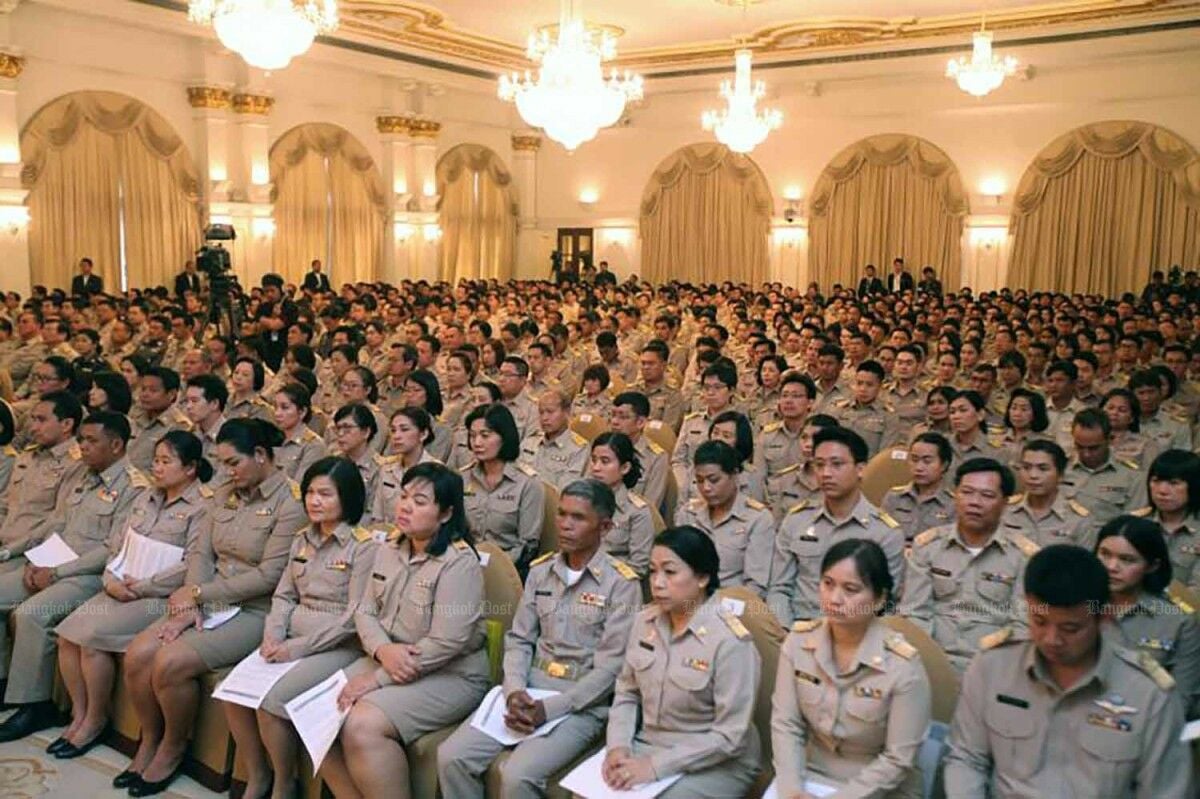Thai Cabinet approves civil service salary increase proposal

The Thai Cabinet has acknowledged a proposal to adjust the starting salaries for new civil service recruits, with a bachelor’s degree holder earning no less than 18,000 baht and a vocational certificate holder receiving a minimum of 11,000 baht. This adjustment is expected to utilise a budget of 2.67 billion baht.
A meeting took place at Chiang Mai Rajabhat University, Mae Rim Centre, Chiang Mai yesterday, November 29 at 1pm. Karom Polpornklang, Deputy Spokesperson for the Prime Minister’s Office, announced after the off-site Cabinet meeting that the proposal aims to adjust the initial salary rates and compensate those affected by economic changes.
Temporary cost-of-living allowances for government employees are also included. The proposed budget spans two years, with the first year covering five months and requiring 830 million baht, and the second year covering 12 months and necessitating 1.84 billion baht. The initiative began on May 1 and will extend until September 30, 2025. Government agencies are expected to initially fund these changes from their own budgets. Should these funds be insufficient, the central annual expenditure budget, including emergency reserves, will be utilised as proposed by the Public Sector Management Committee.
The salary adjustments focus on ensuring that bachelor’s degree holders and vocational certificate holders, upon joining the civil service, earn no less than 18,000 baht and 11,000 baht respectively. Over the next two years, these figures ensure that current civil servants with equivalent qualifications do not earn less than new recruits. The new salary adjustments will maintain equity among individuals with the same qualifications, preventing scenarios where those previously earning higher salaries end up earning less than new employees in similar roles. This move is aimed at rectifying imbalances for those who joined the civil service before the new starting salary rates take effect.
The meeting also assigned the Office of the Civil Service Commission (OCSC) to coordinate with various personnel management committees and relevant agencies. This collaboration will ensure compliance with legal procedures for different types of civil servants and relevant laws. The goal is to have these processes effectively enforced and aligned with the proposed principles, reported KhaoSod.
Karom further explained that the OCSC has been tasked with liaising with the Ministry of Interior, the Ministry of Finance, and other pertinent agencies. This effort is designed to integrate the principles and practices into the management and consideration processes for local government officers and state enterprise employees.
“The Cabinet is committed to ensuring that the salary adjustments and compensations are implemented fairly and equitably, taking into consideration the economic challenges faced by government employees.”
What Other Media Are Saying
- Bangkok Post reports the Thai Cabinet’s approval of a 10% salary increase for new civil servants over two years, aiming to enhance compensation amid a budget allocation of 16 billion baht. (read more)
Frequently Asked Questions
Here are some common questions asked about this news.
Why is the Thai government focusing on salary adjustments for civil servants now?
The adjustments address economic disparities and aim to align salaries with current living costs and qualifications.
How might these salary adjustments impact the motivation and performance of civil servants?
Fair compensation can enhance motivation and performance, leading to more effective governance and public service.
What could be the long-term effects of aligning salaries with qualifications in the civil service?
Long-term effects may include reduced turnover, increased job satisfaction, and a more equitable work environment.
How do these salary changes reflect broader economic policies in Thailand?
They mirror efforts to mitigate economic challenges and improve living standards amid changing economic conditions.
What if the budget for salary adjustments proves insufficient? How will this be addressed?
Insufficient funds will be supplemented by the central annual expenditure budget, including emergency reserves.
Latest Thailand News
Follow The Thaiger on Google News:


























